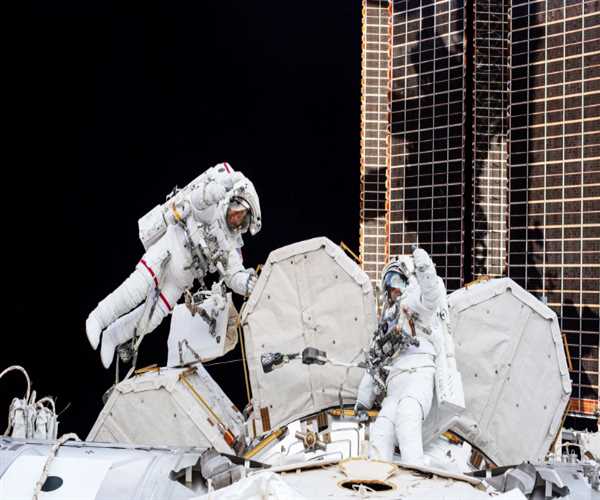
19-Apr-2024 , Updated on 4/20/2024 6:45:25 AM
Will Humans Be Living in Space in the Next 20 Years?
Living among the stars and traveling across the vast expanse of the cosmos has long been a fantasy of humanity. Over the last century, both scientific groups and science fiction writers have spent time studying this concept. Lifetimes of scientific research, inventions by the most brilliant minds, and billions of money spent have all led to that great breakthrough moment. For more than 20 years, humans have lived constantly in space aboard the International Space Station (ISS). And in our lifetime, humans could live on the Moon or Mars.
We may imagine a future in which humans can live off Earth, on another planet, the moon, or perhaps a city-sized space station. Scientists will be able to study the surface of new planets, making discoveries and advances as limitless as the cosmos itself, and gaze farther into the vast expanse of the macrocosm than we can now comprehend.
Of all, it all starts with the basics: the first planetary outposts and orbital space cities. Fortunately, many fascinating advancements are anticipated to occur in the next few years.
The necessity and benefits of space exploration
This new space age will help everyone on Earth. The need to explore space and expand human civilization is viewed as critical for a variety of reasons. One of the most important is that it may be necessary for human survival. Asteroid impacts, climate change, environmental disasters, and nuclear disasters are all real threats to global extinction. Putting all of the humans in the same basket may not be the best idea.
Human settlements on several worlds, and possibly even distant star systems, would ensure that human life continues. With careful planning and strategic action, scientists could also safeguard the survival of Earth's plant and animal species that will exist in our new space civilizations as well.
Space travel: Problems and Solutions
There are numerous serious hurdles to overcome when traveling through space. Radiation, oxygen deprivation, microgravity, pressure changes, and severe temperatures are among the most serious issues. We can also be a threat, as there is a risk of biological contamination, which will necessitate constant monitoring to ensure that infections such as germs or viruses do not spread across worlds.
There are two techniques to safeguard against radiation. Passive shielding involves blocking radiation with a physical material such as polyethylene, lead, or others. Alternatively, active shielding uses electromagnetic fields in the same way that our Earth's magnetic field protects humans from space radiation.
When it comes to air, we either bring it with us or try to produce it with things available at our location. The current method for producing oxygen in space is water electrolysis, which divides water molecules into oxygen and hydrogen. NASA has also created MOXIE, which absorbs carbon dioxide (an abundant supply on worlds like Mars) and transforms it to oxygen and carbon.
The lack of gravity in space can cause serious health concerns, but rotating space stations can provide artificial gravity. Researchers have also been constructing smaller rotating systems that may fit within a room on a space station, allowing people to sense gravity and mitigate the use of an asteroid to build a spinning space station is an ingenious approach to create artificial gravity while also providing radiation shielding. Underground communities may also be beneficial since they provide lower temperatures and radiation protection.
Some caves on the Moon maintain a tolerable temperature of 17°C (63°F) and may be used for future lunar communities. Space stations, interplanetary communities, and space suits must be appropriately pressurized and constructed with radiation and extreme temperature resistant materials. It's a work in progress.negative effects of prolonged microgravity.

CONTENT WRITER
Writing is my thing. I enjoy crafting blog posts, articles, and marketing materials that connect with readers. I want to entertain and leave a mark with every piece I create. Teaching English complements my writing work. It helps me understand language better and reach diverse audiences. I love empowering others to communicate confidently.
Join Our Newsletter
Subscribe to our newsletter to receive emails about new views posts, releases and updates.
Copyright 2010 - 2026 MindStick Software Pvt. Ltd. All Rights Reserved Privacy Policy | Terms & Conditions | Cookie Policy